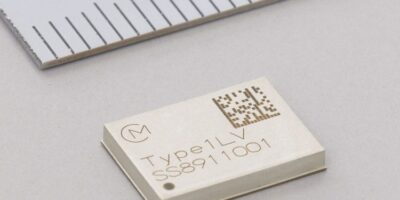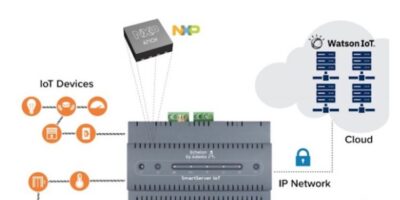A collaboration between Murata and Cypress Semiconductor has led to the development of small form factor Wi-Fi and Bluetooth module. The Type 1LV (CYW43012) module is claimed to be the lowest power, small form factor Wi-Fi and Bluetooth module and to improve battery life in wearables, smart home products, and portable audio applications.
It is based on the Cypress CYW43012 combo chipset, the small dual-band Wi-Fi 11a/b/g/n/ (11ac Friendly) +Bluetooth 5.0 module which provides data transference rates up to 78Mbits per second on Wi-Fi and 3Mbits per second on Bluetooth.
The Type 1LV supports a range of popular processors including PSoC6, i.MX RT, STM32, i.MX, and IP camera platforms, as well as Linux and RTOS-based applications.
The Type 1LV uses enhanced hardware mechanisms and algorithms to ensure that Wi-Fi and Bluetooth co-existence is optimised. An embedded Ipv6 network stack can be used to keep the host processor in sleep mode while maintaining network connections.
The module also supports BLE 2Mbits per second, LE Secure Connections, LE Privacy 1.2, and LE Data Packet Length Extension. The device operates seamlessly in dual-band networks with increased energy efficiency and enhanced security providing optimal performance in Wi-Fi 5 networks, says Murata.
The module measures 10.0 x 7.2 x 1.4mm. It will have a reference antennae design for FCC/IC certifications and CE conducted test to provide a lower development cost and faster time to market.
The Type 1LV module is now in mass production.






